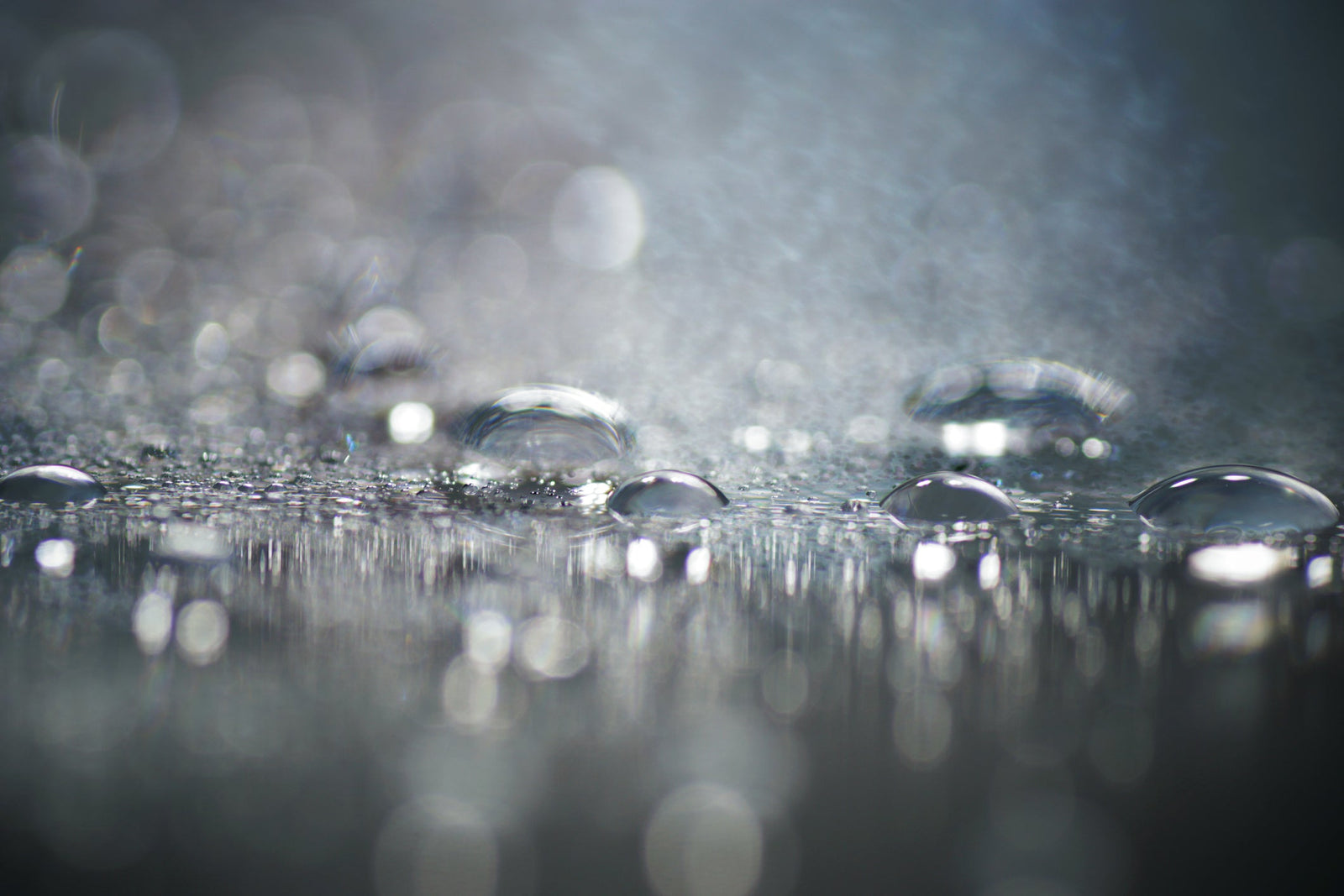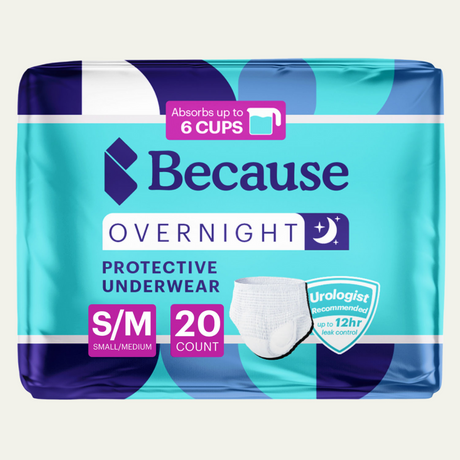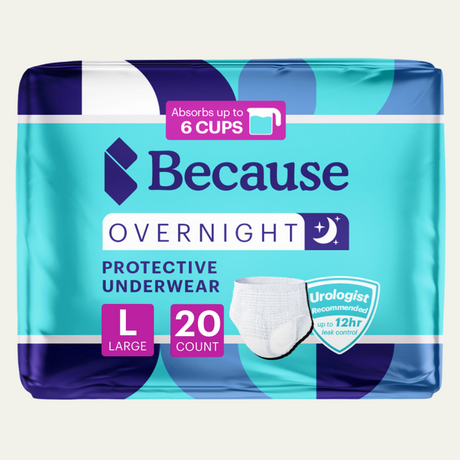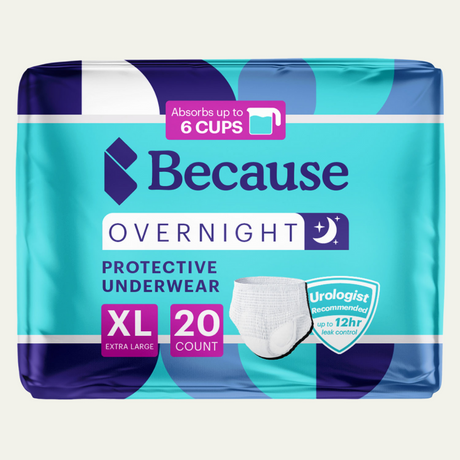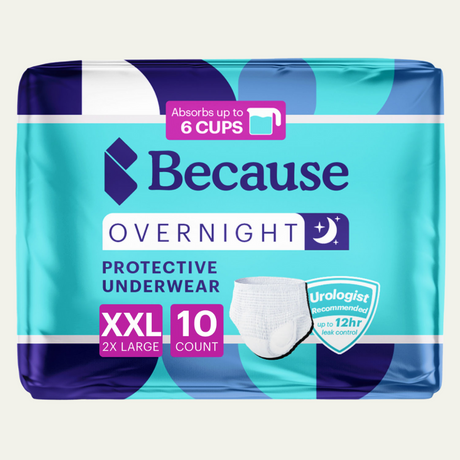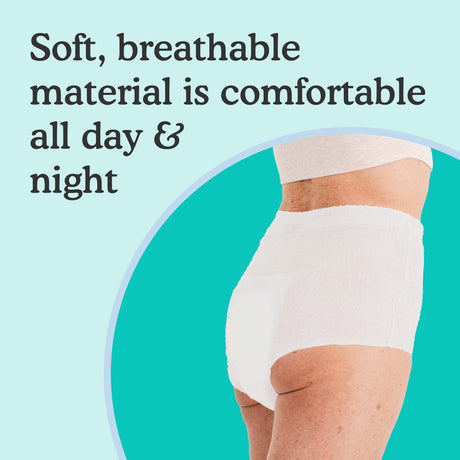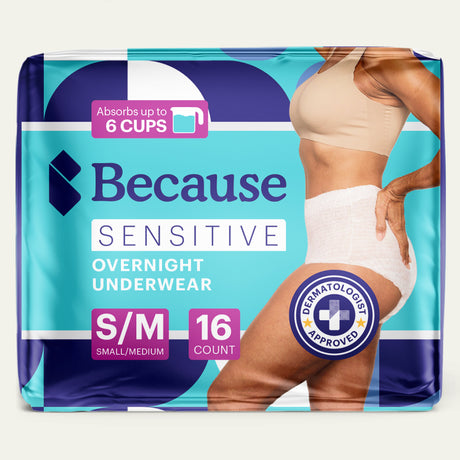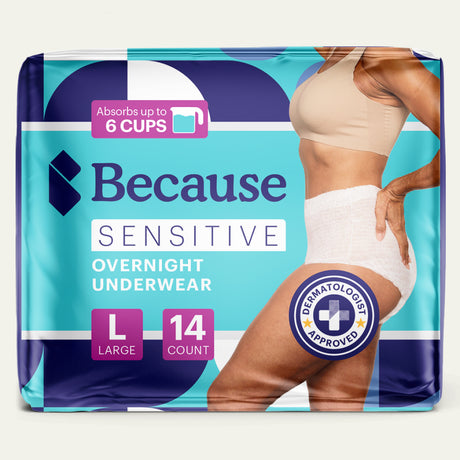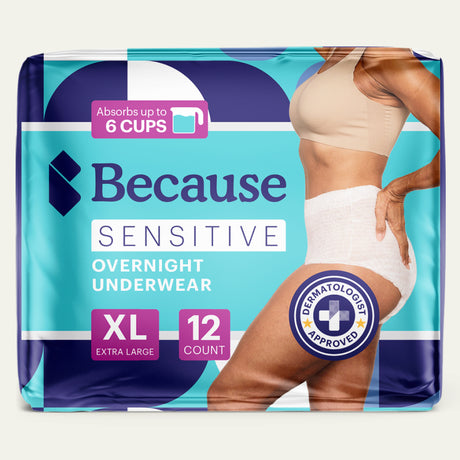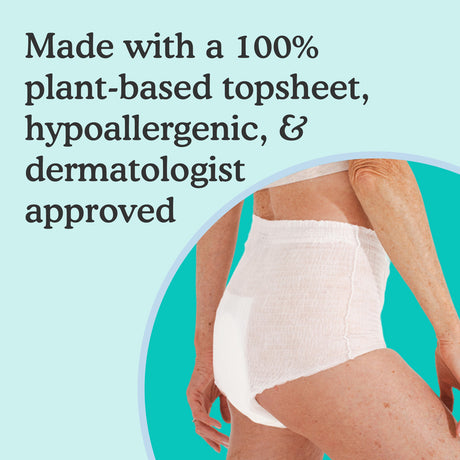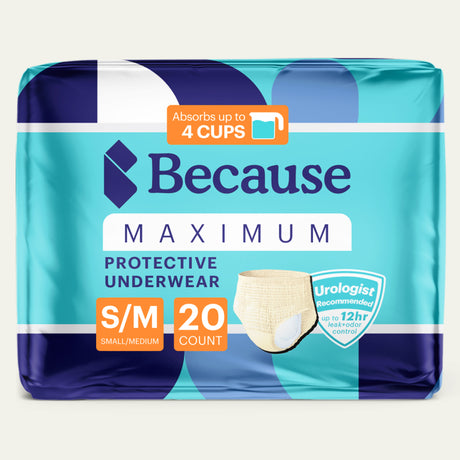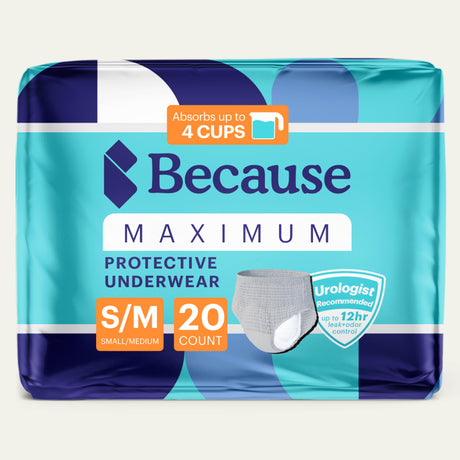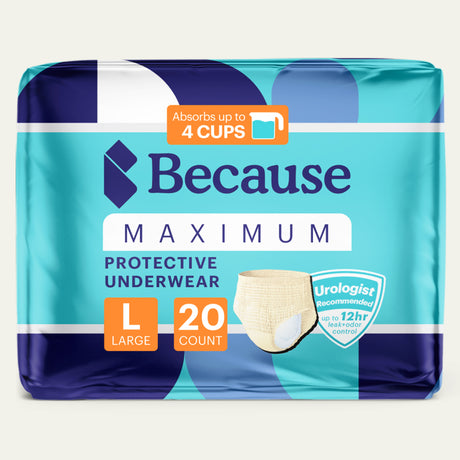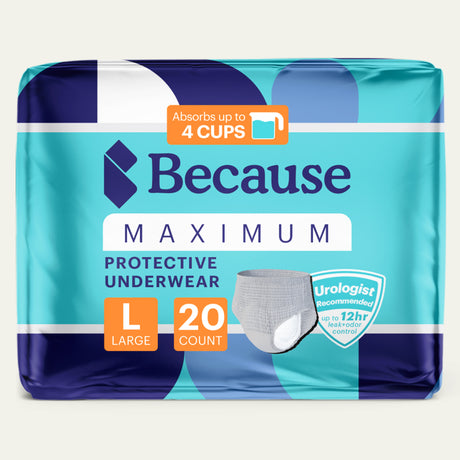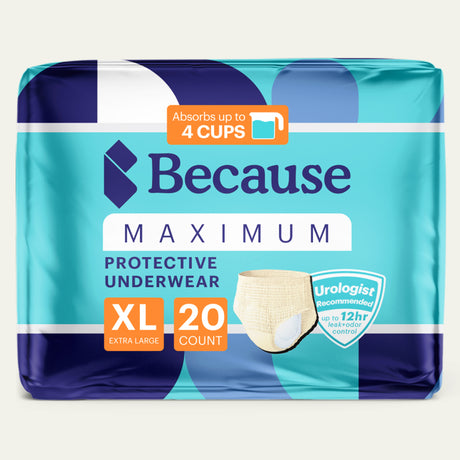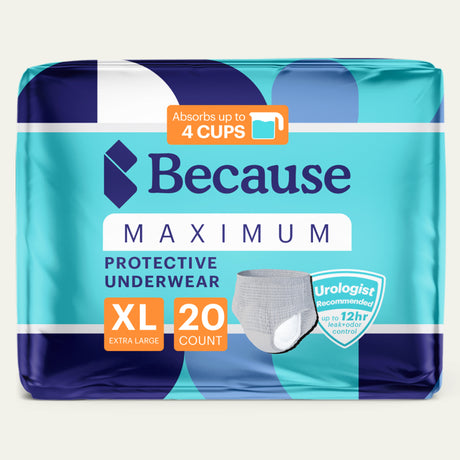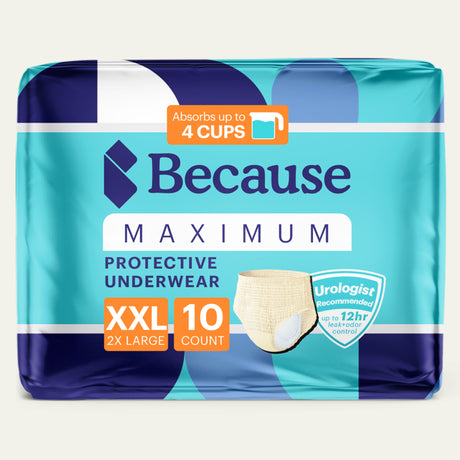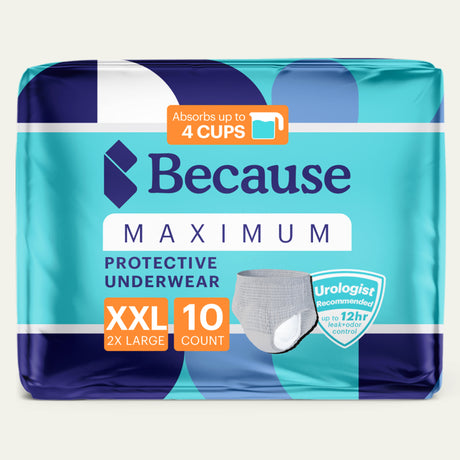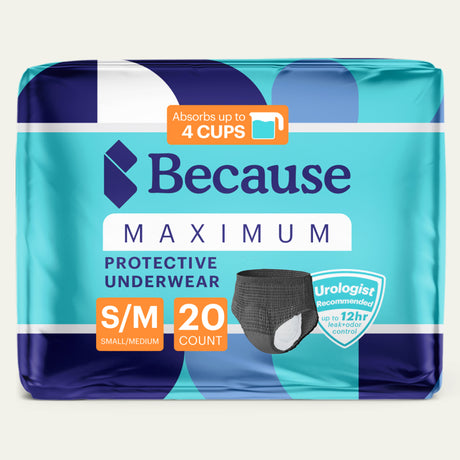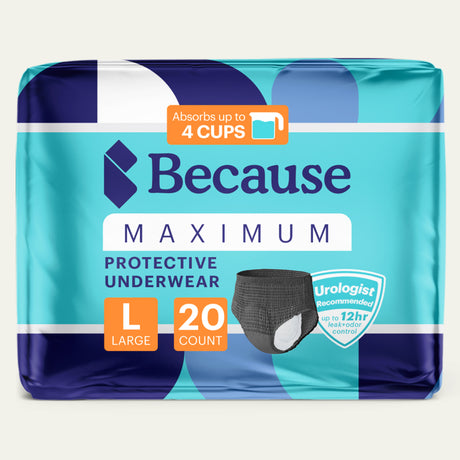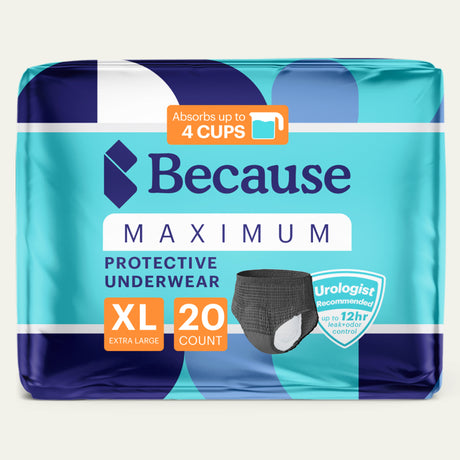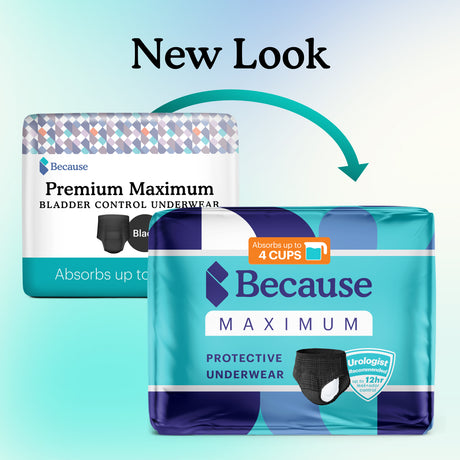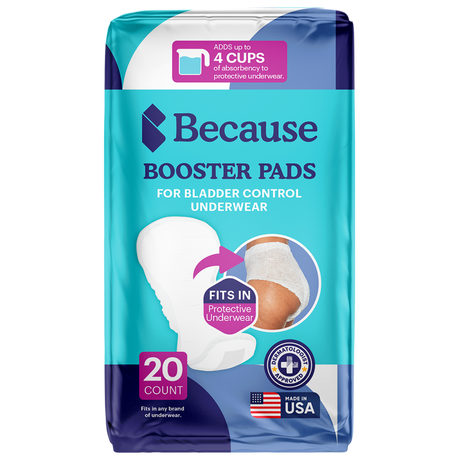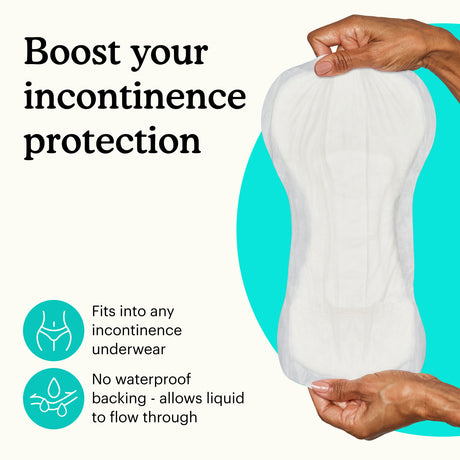Your overactive bladder symptoms may be under control in the summer. But then winter arrives, and suddenly it seems like you're back to frequent trips to the bathroom and worrying about leaks and accidents. It almost seems like the weather is somehow to blame — but that isn't possible, is it?
If this sounds familiar, you may be surprised to learn that frequent urination during cold weather isn't all in your head. It's a well-documented medical phenomenon that causes people to ask, “Does cold weather make you pee more?”
Why Do We Urinate More in Wet and Cold Months?

One of the biggest reasons we urinate more during wet and cold months is due to how our bodies get rid of excess fluid. To keep your body working properly, you give off liquid waste through a combination of urine and sweat. During the summer months, it's hot outside so you sweat more. Once cold temperature arrives, you likely sweat less and give off less fluid as a result. The extra liquid needs to go somewhere, so your body produces more urine.
People without bladder control issues may notice only a minor effect from shifts in temperature. For those with an overactive bladder (a type of urinary incontinence), cold weather exacerbates urinary frequency and urgency symptoms.
Overactive bladder (OAB) is when the muscles of your bladder contract, signaling that you need to urinate even when your bladder isn't full. More urine production means your bladder fills up more quickly, causing you to need to use the toilet more, increasing the likelihood of leaks.
What Is Cold Diuresis and How Can We Prevent It?
Cold diuresis, or cold-induced diuresis, is another piece of the puzzle as to why we urinate more often in cold weather. It's a biological response to being in the cold. Doctors and scientists don't fully understand why it happens, but we know it occurs with prolonged exposure to cold conditions.
As your body temperature decreases, your blood vessels narrow, and less blood reaches the skin. In turn, blood and warmth build up around your organs. Your blood begins to circulate through a smaller pathway and blood pressure levels increase. To help keep your blood pressure in check, your kidneys start working harder and producing more urine. When your body makes more urine, bladder control problems worsen.
Since cold diuresis is a natural response to the cold, there isn't anything you can do to prevent it entirely. However, staying warm throughout winter can make it less likely to occur. Make sure you dress for the weather when you're outdoors. If your house is chilly, wear layers and add extra blankets on your bed at night.
Coping with an Overactive Bladder in Cold Weather

Self-care and bladder protection products help you cope with your symptoms if you have an overactive bladder. Follow these tips to manage OAB during the colder months.
Watch Your Diet
Bladder irritation can worsen urinary urgency and frequency associated with OAB. Caffeine, citrus, artificial sweeteners, spicy foods, and other foods and drinks can cause the bladder to become inflamed. Keeping a food journal can reveal patterns and help you identify foods you should avoid or cut back on during cold winter months.
Stay Hydrated
Your fluid intake impacts the amount of urine you make. Drinking too much water could worsen bladder issues by increasing urine production and causing your bladder to fill too quickly.
Still, cutting back on water too much also isn't healthy. Dehydration can make urine more concentrated, leading to bladder irritation. Additionally, dehydration can disrupt the body's natural salt balance, causing various symptoms — from fatigue to dizziness. Talk to your medical provider about how much water you should drink daily to stay hydrated.
Use Incontinence Protection

Effective incontinence protection products can protect you from wet clothes when leaks and accidents occur. Bladder protection products come in different levels of absorbency. For example, Because Premium Overnight Plus Underwear for Women can hold up to 6 cups of urine for overnight protection, while Because Premium Pads for Women Maximum can retain up to 2 cups.
You can try incontinence pads inside your regular underwear and incontinence underwear that takes the place of your usual undergarments. Wearing incontinence protection during the winter help women and men feel more confident about suddenly having to urinate while away from home.
Practice Good Hygiene
Urinary incontinence can lead to skin irritation and unpleasant body odors. Fortunately, good hygiene and skin care can reduce the risk of both. Change your incontinence protection as soon as possible after leaks or accidents occur. Use a cleansing spray or incontinence wipes to cleanse your skin. When irritation occurs, apply a barrier cream to seal in moisture and protect the skin. You might want to use a hydrating bathing cloth to keep skin moisturized.
When you change your bladder protection pad or underwear, dispose of it properly. Place the pad or undergarments in a disposable bag before throwing them in a wastebasket. Avoid flushing used bladder protection products. Taking the trash out regularly can lower the likelihood of odors when you properly dispose of incontinence protection.
When to Talk to Your Doctor About Urinary Incontinence That Gets Worse in Wet and Cold Months

If bladder control problems during winter interfere with your daily life, talk to your medical provider. Even though the change in weather is unavoidable, you don't have to endure frequent urination and leaks until warm weather arrives. Treatments for an overactive bladder can reduce symptoms year-round.
Do you struggle with an overactive bladder that worsens in wet and cold months? Take our bladder protection quiz and try our super absorbent pads!
If you're struggling with incontinence, join one of our private support groups today!
Women's Incontinence Support Group
Men's Incontinence Support Group
Source:
Arkansas Urology. (n.d.). Does Cold Weather Make You Pee More Often? https://arkansasurology.com/does-cold-weather-make-you-pee-more-often/
